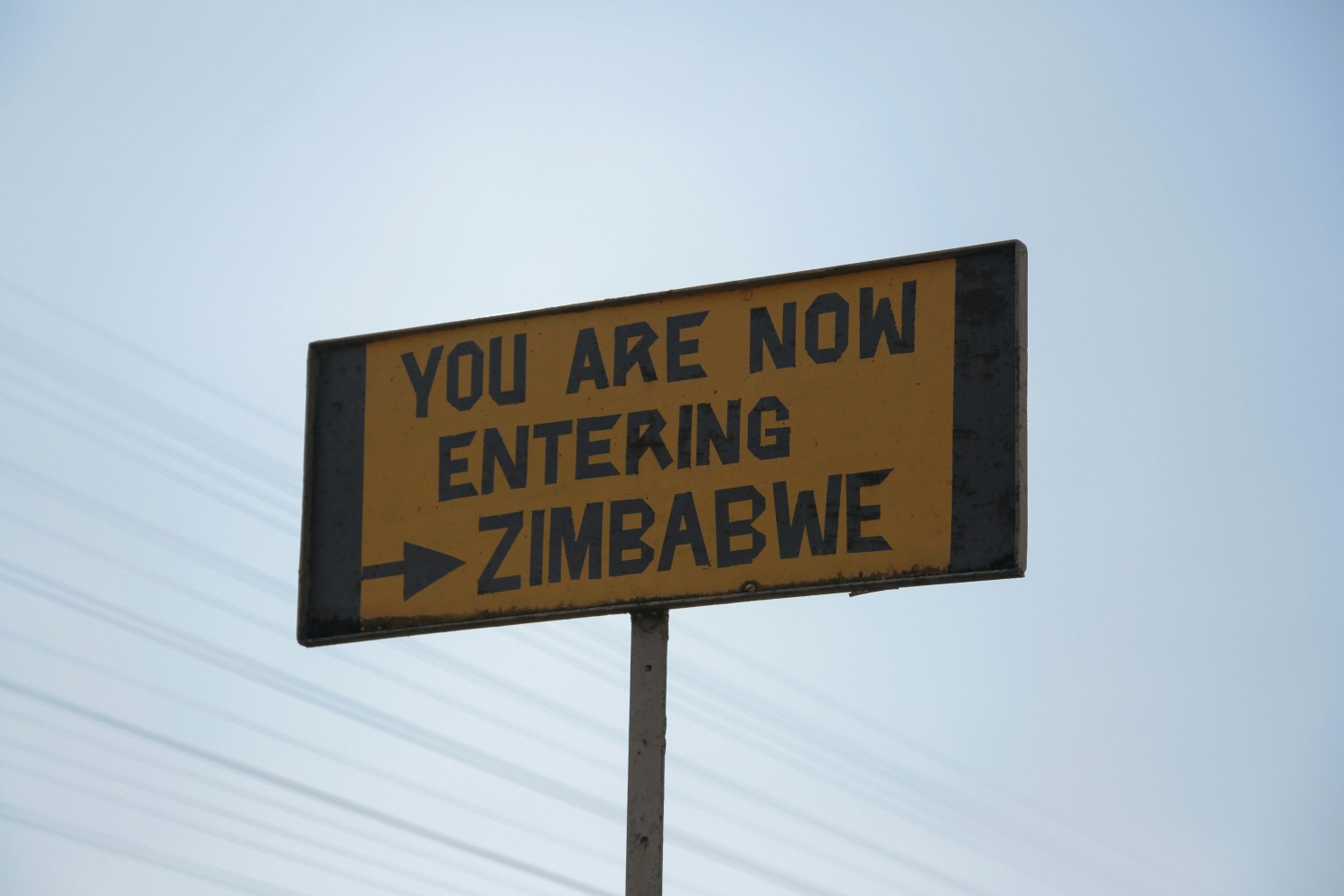Welcome!
This is your virtual country space to connect, engage, learn and explore everything that is important to help you grow your business beyond borders. Your views are important! Share a post, participate in discussions, and speak-up in our polls - tell us about the tools, resources and connections that will help you.
Zimbabwe FDI outlook peps up notably
ZIMBABWE’s foreign direct investment (FDI) prospects are brightening, kindled by recent initiatives by authorities to improve the country’s global tie-ups
Zimbabwe’s new ZiG doomed by overall lack of transparency
Economic mismanagement has stripped citizens’ trust in the government and threatens the new currency’s viability.
The struggle to stabilise Zimbabwe’s economy continues, with no signs of relief for ordinary citizens. The recently introduced currency, Zimbabwe Gold (ZiG), seems destined to suffer the same fate as the five previous attempts to create a local currency.
Zimbabwe’s economy thrives on informal trade, with most traders operating outside the banking system. The Reserve Bank of Zimbabwe’s decision to introduce the ZiG electronically before hard currency is available has sparked panic. An informal trader in Harare told ISS Today about widespread trading disruptions and uncertainty among fellow dealers.
The gold-backed ZiG was due to be rolled out on 8 April (the date has since been pushed to 30 April). Anyone found with notes amounting to Z$100 000 (about US$2) after the ‘start’ date would have to explain why they had that amount of cash. As a result, many traders are refusing to accept Z$ notes and deal solely in forex. The few accepting Z$ doubled their prices, leaving consumers earning local currency poorer.
The trader said the public transport sector was also affected, with operators refusing to accept the outgoing local currency for local trips and transacting only in US$. Commuters ended up paying US$1 for a trip that cost US50c.
The new currency comes after the Z$ lost over 70% of its value in the first three months of 2024. Inflation now stands at 2 647% – the highest in the world.
The economic and currency collapse emanates from bad governance, irrational policies and disregard for economic fundamentals that define the Zimbabwe African National Union-Patriotic Front (ZANU-PF) regime.
Electrifying Zimbabwe’s Growth Through Reliable and Universal Energy Access
Power shortages have a significant adverse impact on the productive sector and result in higher costs for Zimbabwe’s economy.
Despite recent achievements, Zimbabwe’s electricity sector still faces power supply deficits and slow progress toward universal electricity access.
Peak electricity demand is projected to grow substantially, and achieving universal electricity access will require large investments, especially in solar power and grid expansion.
Zimbabwe hopes to achieve the high economic growth rates needed to move toward upper middle-income status by 2030, but to achieve this it will be critical to realize stable and reliable electricity access, according to the latest Zimbabwe Economic Update (ZEU). Zimbabwe’s power shortages are estimated to cost the country a total of 6.1% of GDP per year, comprising 2.3% of GDP in generation inefficiencies and excessive network losses and 3.8% of GDP on the downstream costs of unreliable energy.
Despite some recent achievements, Zimbabwe’s electricity sector still faces major challenges. The country still suffers from significant power deficits. In 2020, the available generation capacity was 1,585 MW compared with a peak demand of 1,900 MW, forcing power outages of 12–14 hours a day. While the government commissioned an additional 600 MW at the Hwange power station in 2023, installed capacity is still insufficient to meet demand, and rolling blackouts significantly burden Zimbabwe’s economic growth and competitiveness. The pace of rural electrification has slowed down. Between 2014 and 2020, overall energy access expanded from 32 to 53%, driven by a rapid rise in access in rural areas (from 8 up to 37%).
“The electricity deficits have been weighing on the economy, particularly in mining, by reducing the margins of existing operations and on the feasibility evaluations for expansions and new projects. The shortages also affect the agriculture and agro-processing sectors by undermining irrigation, cold chain, and storage facilities. Tourism is also affected by the disruption of essential services. These effects translate into lower economic growth and household incomes,” says Victor Steenbergen, Senior Country Economist for the World Bank in Zimbabwe,.
Peak electricity demand is projected to grow substantially, and achieving universal electricity access will require large investments, especially in solar power and grid expansion. Medium-term World Bank projections suggest that electricity demand will grow from 1,950 MW in 2022 to 5,177 MW by 2030, driven primarily by increasing demand from the mining and agriculture sectors. Achieving universal access by 2030 will require annual connections to increase from 25,000 in 2020 to about 537,000 annually.
“Estimates for least-cost generation expansion indicate that, in the short-to-medium term (2024–26), utility-scale home solar systems would be the fastest units to provide additional capacity, adding more than 1,500 MW that would ensure the system can meet growing demand,” says Joel Maweni, Energy Consultant and co-author of the Zimbabwe Economic Update.
Subsequently, generation expansion efforts would comprise gas power plants, hydropower, and more solar. The associated grid network expansion to 2030 is estimated to cost $4.4 billion. While the government is planning to expand electricity access through various sources, it remains unclear how the investment needed will be financed. The biggest planned increase in electricity supply comes from the Batoka Gorge Project along the border with Zambia (1,200 MW for Zimbabwe) projected for completion after 2034, and the Devil’s Gorge (1,200 MW) to be completed by 2040.
“Financing electricity expansion from domestic resources alone will be challenging, so there is an urgent need to involve more private investors and the international development community,” says Christopher Saunders, World Bank Senior Energy Specialist.
The ZEU provides some recommendations to help attain the government’s ambitious targets to achieve reliable and universal energy access by 2030:
Develop an energy roadmap covering structural, policy, and utility reforms to achieve sustainable financial viability and affordable and reliable universal access to electricity for economic and social development.
Strengthen the financial performance of the power sector through a policy of cost-reflective tariffs, cross-subsidized tariffs for vulnerable consumers, a plan to improve the efficiency of power companies and loss reduction, and a mechanism to restructure power companies’ legacy debt.
Strengthen the technical planning and institutional coordination for power system expansion planning, implementation, and monitoring at the Ministry of Energy and Power Development level.
Promote private energy sector investments by streamlining regulations for small-scale energy investments, and improved coordination across regulatory agencies to ensure consistent, light-handed regulatory approaches and enforcement across all energy investment projects.
The ZEU finds that Zimbabwe’s interconnected problems of electricity supply and access are ultimately driven by three underlying issues: weak financial performance of energy companies, insufficient central planning and coordination, and limited private sector participation. The weak financial state of Zimbabwe’s electricity companies is the most significant issue driving the country’s power supply deficits and slowing the expansion of universal access to electricity services. Energy tariffs do not reflect the financial costs of energy generation and distribution, leading to significant losses for power companies. The inefficiencies of the utility companies complicate this.
High debt servicing costs also burden energy companies. Insufficient revenues and high debt lead to cashflow shortages, which in turn constrain the companies from investing in new generation, transmission, and distribution assets, including in access expansion; attracting private sector investment and commercial financing for the sector’s investment plan; adequately maintaining existing assets; and forcing them to import power from neighboring countries to satisfy electricity demand consistently
Zimbabwe’s new currency hunting for investors – still beating the rand

Zimbabwe is making a fresh push to lure foreign capital and is using its new gold-backed currency to persuade investors it won’t repeat mistakes that led to hyperinflation and economic woes in the past.
The southern African nation, whose serial currency crises have made it a watchword for policy malpractice, kicked off an international road show that took it to Johannesburg last week with upcoming visits planned for London and Dubai.
Still, skeptics doubt the ZiG, short for Zimbabwe Gold, will avoid the same fate of its predecessors, which were all rendered worthless by the government’s habit of printing money to finance spending.
Zimbabwe on Thursday announced fines to enforce the use of the unit’s official exchange rate – set daily by the central bank – to shore up confidence, and is compelling companies to pay part of their taxes in the unit to encourage its use.
On Friday, the ZiG was trading at 13.51 to the US dollar. The South African rand was at R18.40 to the US dollar.
“The ZiG on its own is not a prompt for foreign investors to commit fresh capital to Zimbabwe,” said Hasnain Malik, the head of equity strategy research at Tellimer in Dubai. “For that they need to see the build-up of hard currency reserves and a track record for easy convertibility and repatriation.”
Unveiled on April 5, the ZiG is Zimbabwe’s sixth attempt to launch a stable local currency in 15 years. It replaces the Zimbabwean dollar, whose value had plummeted 80% against the greenback since the start of the year, and is backed by 2.5 tons of gold and $100 million in foreign exchange reserves held at the central bank.
Although the greenback remains the top choice on the streets, ZiG notes and coins are now circulating and the central bank vows not to print any more than it can back with reserves. It also plans to publish annual data to prove it’s keeping its word.
Analysts are reserving judgment.
They recall how President Emmerson Mnangagwa declared Zimbabwe open for business in 2018 after replacing longtime ruler Robert Mugabe, and little changed despite a world tour to court investors.
Mnangagwa is now on a US sanctions list amid allegations of corruption and human rights abuse, though restrictions on the country were eased in March.
“I don’t think they will be encouraged to invest until we get clarity on the effectiveness of the new regime,” said Jacques Nel, at Oxford Economics Africa. “Even if the roll-out took place in a smooth and ordered manner, which it didn’t, Zimbabwean authorities still lack the credibility needed to implement a plan like this.”
Zimbabwe has been locked out of capital markets since 1999 for defaulting on its debt and to restore access it needs to clear billions of dollars in arrears with creditors including the World Bank, European Investment Bank and Paris Club.
It’s working to fix that by deepening ties with the International Monetary Fund and hopes to secure a staff-monitored program in the second half of 2024.
IMF Ambitions
Abebe Selassie, head of the Washington-based lender’s African Department, told Bloomberg last month that that was a realistic time frame. Such an arrangement would not itself include financing, but could be a stepping-stone to IMF lending in the future.
Restoring access to development lenders would be a major step toward restoring confidence in the country, which has an abundance of natural riches including gold and lithium vital to decarbonization.
Still, for investors attending the May 2-3 event in Johannesburg’s leafy northern suburbs, policy uncertainty remains a major concern.
“While the ZiG being gold backed will provide a certain level of stability, investors often need time to understand the direct impact,” said Valentine Garacho, co-founder of Zerttew Global which has mining interests in Zimbabwe. “Ultimately, what investors want to be clear about is the security of their investment.”
Neighboring South Africa is the nation’s largest trading partner, making it a priority stop in any search for investors, given several of its big banks and retailers are already there doing business.
After Johannesburg, Team Zimbabwe will head to Dubai in June. Trade between the United Arab Emirates and the country has been on the rise and the UAE is now a top destination for Zimbabwean exports.
‘One-Stop-Shop’
The country set up the Zimbabwe Investment and Development Agency in 2022 as “a one-stop shop” to attract suitors, said Tafadzwa Chinamo, its chief executive officer.
In the first quarter of this year, China topped the list of nations investing in Zimbabwe alongside India, Pakistan and South Africa. Chinese investments were $286 million, according to agency data.
The Zimbabwe-South Africa Business Chamber also plans to lobby its counterparts in Europe and the US to seek investors.
It points to the repeal of an empowerment law which previously required a 51% controlling stake be held by locals, as an example of progress toward a more investor-friendly environment.
“The idea is to jump onto a plane with them to Zimbabwe,” said chamber Chairman Farai Madziwanyika during the conference. “Our message to them is do you want to wait until things are perfect, or you go in now?”
Zimbabwean president declares state of disaster due to drought
Emmerson Mnangagwa says country needs $2bn of aid as severe dry spell caused by El Niño afflicts southern Africa
Zimbabwe has declared a national disaster over a drought caused by the climate event known as El Niño and President Emmerson Mnangagwa has said the country needs $2bn in aid to help millions of people who are going hungry.
The severe dry spell is wreaking havoc across southern Africa.
“No Zimbabwean must succumb or die from hunger,” Mnangagwa told a press conference. “To that end, I do hereby declare a nationwide state of disaster, due to the El Niño-induced drought.”
Due to poor rains, more than 2.7 million people will not have enough food to put on the table this year, he warned. This season’s grain harvest was expected to bring in just over half of the cereals needed to feed the nation, he said.
The naturally occurring Niño climate pattern, which emerged in mid-2023, usually increases global temperatures for a year afterwards. It is currently fuelling fires and record heat across the world.
El Niño forecast to drive record heat from the Amazon to Alaska in 2024
In southern Africa, Zimbabwe is the third country to declare drought a national disaster after Malawi and Zambia. The measure allows the government to access more resources to address the crisis.
The drought has also affected electricity production as Zimbabwe is highly reliant on hydroelectric power.
According to the World Meteorological Organization (WMO), the latest El Niño is one of the five strongest on record and its impact will continue by fuelling heat trapped in the atmosphere by greenhouse gases.
El Niño reached a peak in December, but should still result in above-normal temperatures until May over almost all land areas, the WMO said.
Major food growing areas in Malawi, Mozambique, Namibia, Zambia and Zimbabwe received only 80% of average rainfall during the mid-November-to-February southern hemisphere summer, the Food and Agriculture Organization said, stressing an increased risk of food insecurity.
Rainfall in January and February was the lowest in 40 years, according to the UN.
Zimbabwe’s UN resident coordinator, Edward Kallon, said efforts were under way to mobilise resources and finalise a response plan. “This crisis has far-reaching consequences across various sectors,” Kallon said.
The drought has driven many people to use unsafe water sources, fuelling cholera outbreaks already afflicting several southern African countries, according to the UN Office for the Coordination of Humanitarian Affairs.
El Niño is also forecast to bring heavy rains and flooding in the coming months, heightening the risk of malaria and other diseases.
Meanwhile, unable to source grain from traditional suppliers in Zambia and Malawi, Zimbabwean millers have been importing genetically modified maize from South Africa.
But climate and agriculture expert Tafadzwa Mabhaudhi, of South Africa’s University of KwaZulu-Natal, said the country also had limited surplus to export to its neighbours.
“Importing maize also means food price increases, which will impact the food security of poor people, who were already struggling to afford healthy diets,” he told AFP.
Last month, small-scale Zimbabwean farmers in affected areas told AFP they were already struggling to to feed their families, after their crops failed and food prices skyrocketed.
What’s in a name, Zimbabwe?
 Reserve Bank Governor John Mushayavanhu had something to say about it all: ‘If you blame me you’re actually blaming the World Bank.’ Image: Bloomberg
Reserve Bank Governor John Mushayavanhu had something to say about it all: ‘If you blame me you’re actually blaming the World Bank.’ Image: Bloomberg
Oh dear, what an embarrassing situation unfolded in Zimbabwe over the past fortnight. Subsequent to an absolutely chaotic 10 days following the announcement by the government of a new currency and the immediate collapse of all banking and other payment systems, we quickly became the laughing stock.
Zimbabwe’s repeated answer to economic chaos is to change the currency, give it a new name, strip a bunch of digits off the end, waste unknown millions printing another lot of bank notes and then pretend it’s just business as usual.
But it’s not business as usual – and the sillier this change-over became, the faster the back-pedalling got.
As we all tried to get our heads around what had happened, and how we were going to pay bills with old money no one wanted and new money that hadn’t even been released yet, out came Reserve Bank Governor John Mushayavanhu to stir the pot a bit more.
“We didn’t know much about the structured currency,” he said of the ZiG. “We got a consultant from the World Bank … maybe they didn’t advise us properly … if you blame me you’re actually blaming the World Bank.”
Oh no! As one, we put our hands over our faces! Blame it on the World Bank!
What a thing to say.
Arrests
Then the big stick emerged and threats came thick and fast.
A week before the new bank notes were even released over 100 currency dealers were arrested in Harare.
The state media bragged about it, but we all know that 100 dealers is a drop in the vast ocean of street currency traders who literally line the pavements outside every supermarket offering to change your US dollars at a rate significantly higher than you can get in the bank.
One press report quoted a currency dealer as saying: “We are all in this mess together. The police can come to assault us … but after work they will come to us asking for the US dollars.”
One economist put his finger on it when he said: “Do you think the government has enough police to arrest seven million people? Everyone has been changing money on the parallel market.”
He’s right of course because for the past 15 years we have all been buying or selling US dollars on the side of the road where we can get at least a third, half or more for our US dollars than the banks will give us.
How do our leaders think we have all survived these years of mayhem? And how do they think so many people got so rich so quickly?
Last week the conversion rate for ZiG to US dollars went from the bank-stated rate of
Zimbabwe’s ZiG is the world’s newest currency and its latest attempt to resolve a money crisis
Out with the Zimbabwe dollar, in with the ZiG. Zimbabwe on Tuesday started circulating a new currency to replace one that has been battered by depreciation and often outright rejection by the people. The ZiG was introduced electronically in early April, but people are now able to use banknotes and coins.
A new “bond note” became legal tender, the Zimbabwe dollar was reintroduced before the gold coins and digital currency were tried.
However, nothing brought any currency stability and the U.S. dollar remains the most trusted for ordinary Zimbabweans.
As the shiny new ZiG banknotes hit the streets, the mistrust was evident.
Kudzanayi Mande, a vegetable trader at the crowded Mbare market in the capital of Harare, said she would rather forgo a sale than accept the ZiG. She was confused, the 56-year-old said.
“Already there is an official exchange rate and a depreciated black market rate, so I will wait a bit to see what its real value is,” she said. “The U.S. dollar is still a safer bet.”
Zimbabwe launches new gold-backed currency - ZiG
 Getty Images
Getty Images
The new banknotes come in denominations from 1 to 200
Zimbabwe has introduced a new gold-backed currency called ZiG - the name stands for "Zimbabwe Gold".
It is the latest attempt to stabilise an economy that has lurched from crisis to crisis for the past 25 years.
Unveiling the new notes, central bank governor John Mushayavanhu said the ZiG would be structured, and set at a market-determined exchange rate.
The ZiG replaces a Zimbabwean dollar, the RTGS, that had lost three-quarters of its value so far this year.
Annual inflation in March reached 55% - a seven-month high.
Zimbabweans have 21 days to exchange old, inflation-hit notes for the new currency.
However, the US dollar, which accounts for 85% of transactions, will remain legal tender and most people are likely to continue to prefer this.
The new ZiG banknotes come in denominations of between 1 and 200.
Coins will also be introduced to overcome the shortage of US coins, which has seen people receive change in sweets, small chocolates and pens.
Mr Mushayavanhu said the new currency was being rolled out with immediate effect and banks must convert current Zimbabwe dollar balances to the ZiG.
He committed to ensuring that the amount of local currency in circulation was backed by equivalent value in precious minerals - mainly gold - or foreign exchange, in order to prevent the currency losing value like its predecessors.
Zimbabweans have a historic mistrust of the central bank, dating back to 2008, when it was printing Z$10tn notes while inflation had run out of control.
It then abolished its own currency and for many years only used foreign banknotes such as the US dollar and the South African rand.
In late 2016, the body introduced a new currency called the bond note that was backed by the US dollar loan facility. The then-central bank governor John Mangudya vowed it would remain on a par with the US dollar. But the bond note crashed when the government began printing excess money.
Promises have now been made by the central bank's new governor that overprinting will not be allowed to happen again.
But public reaction on Friday to the latest currency reveal has been subdued.
"We now end up in the same place where we started - where assurances are being given to the market that the government will live within its means," economist Godfrey Kanyenze told the BBC.
"The political culture has not changed - the critical point is discipline on the part of the authorities."
The announcement of the new currency comes as the country is grappling with the effects of a serious drought, which has destroyed half of the country's crop of the staple food, maize.
Why Mutapa Investment Fund must prioritise agri-food sector.
This is the first of two blogs focusing on why the Mutapa Investment Fund must leverage its assets for profitable impact investment that is aligned with national objectives, primarily in the agri-food sector.
In September of last year, the Government of Zimbabwe renamed and restructured the original 2014 Sovereign Wealth Fund, now the Mutapa Investment Fund, with former Reserve Bank Governor, Dr. John Mangudya at its helm, vesting it with government shareholdings in a number of state-owned entities and former parastatals along with other government investments.
The Mutapa State, which gives its name to the freshly renamed fund, was a kingdom (c. 1450-1902) which stretched from the Zambezi valley into the Mozambique lowlands and towards the fringes of the Kalahari Desert. The state developed an economic system whose three pillars were agriculture, trade, and mining. This economic system was responsible in the rise, expansion and growth of a vast trading empire.
In the past few years, sovereign wealth funds (SWFs) have become more active in Africa than ever before. Governments have opened up to the idea of establishing their own investment arms to fill critical gaps in financing projects and trigger increased investment in priority sectors. With the right combination of innovation and risk management, Africa’s government investment arms can have a powerful impact in key economic sectors, according to a study by the global consulting firm, the Boston Consulting Group.
Among the vested state-owned entities are major agricultural and allied sector concerns, including AFC Holdings (which this year celebrates a century of agricultural financing), Allied Timbers Zimbabwe , Silo Food Industries, Cotton Company of Zimbabwe, Cold Storage Commission, and ARDA Seeds. Now with a controlling stake in ZimRe, following approval to acquire businessman Hamish Rudland’s controlling stake in one of the country’s biggest insurance and property investors, Mutapa now also controls CFI Holdings, another major player in the agriculture sector.
The placing of these agricultural giants under Mutapa creates one single entity that has potential to move the dial significantly for agricultural and agro-industry transformation in the country, accelerating growth and innovation that will bolster the agri-food sector and support the country’s efforts in addressing challenges in achieving food security. It now has a unique role to play in the development of the economy.
The consolidation of these companies under Mutapa can facilitate collaboration and integration prospects, and Mutapa can prioritise investments in ventures and technologies that will enhance food production, processing, and distribution, driving growth and innovation across both the food and agribusiness sectors.
This will not only help address food security priorities for present and future generations in accordance with the Government’s national food security objectives, but underscore a commitment to impact and sustainability. President E.D. Mnangagwa, from his inauguration, has repeatedly emphasized prioritised focus on agricultural transformation to drive industrialisation and wider economic reconfiguration and growth.
The fund’s investment strategy, as it rationalises its portfolio, must be aligned to priority areas of development, primarily agriculture, with Mutapa at the centre of that development.
Start Where You Are, Invest Like a Zimbabwean: Building a Global Legacy (3 Years Wiser)
One of my all-time favourite quotes is by Arthur Ashe. He said, "Start where you are, use what you have, do what you can!" I wrote an article titled Invest Like A Zimbabwean three years ago. The world has been through a lot since then. It has become ever clearer to me, especially today on Zimbabwe's 44th birthday, that everyone can and should learn something from Global Zimbabwean investors.
Three years ago, I explored the unique strategies Zimbabwean investors have developed in a constantly evolving economic landscape. Now, as Zimbabwe celebrates its 44th year of independence, reaching a similar milestone to someone who can hear retirement knocking, it's a fitting time to revisit these strategies and see how they translate for global investors today.
Financial Fears vs. Investment Risks: A Behavioral Battlefield
Photo by
Financial fears and investment risks are two sides of the same coin but are not created equal. Investment risks are the inherent uncertainties of the market – fluctuations, inflation, political risks, and economic downturns. Financial fears, however, are fueled by our behavioural biases – the mental shortcuts and emotional responses that can cloud our judgment.
Zimbabwe's economic journey provides a powerful case study in overcoming these biases. Let's explore how:
- Loss Aversion: Loss aversion describes our tendency to feel the pain of losing twice as intensely as the pleasure of gaining the same amount. Imagine allocating your savings towards a specific goal, only to have hyperinflation erode its value. Zimbabweans have had to become adept at managing this bias, but not by simply accepting losses. Here's the key: One way of overcoming loss aversion is to follow a strategic asset allocation strategy. This doesn't involve trying to time the market, a near-impossible feat perfectly. Instead, strategic asset allocation focuses on the long term. You can automatically "buy low" and "sell high" over time by rebalancing your portfolio periodically across different asset classes and geographic regions. Think of it like planting a diverse vegetable garden – sure, some crops might underperform in a particular season. Still, others will thrive, ensuring a bountiful harvest overall. This diversification helps mitigate the sting of loss aversion by ensuring that gains in another balance losses in one area.
- Herd Behavior: The allure of following the crowd can be strong, especially during periods of panic selling. Zimbabweans have learned to be wary of this herd mentality, understanding the importance of independent research and long-term perspective.
- Emotional Gap: Fear can be a powerful motivator, often leading to impulsive decisions. Zimbabwe's economic volatility has forced investors to confront these emotions head-on, developing a sense of discipline and emotional resilience. (Ask a Zimbabwean how many currencies they have used in their lifetime!)
- Anchoring: Clinging to past experiences or outdated information can be a recipe for disaster. Zimbabweans have had to constantly adjust their anchors, re-evaluating strategies and adapting to a new economic reality.
- Self-Attribution: Overconfidence can be a dangerous pitfall. The Zimbabwean experience highlights the importance of humility and a willingness to learn from past mistakes, both personal and national.
By understanding these behavioural biases and how Zimbabweans have navigated them, we can invest more strategically in a world of uncertainty.
The 5 Ever-Present Investment Risks: A Zimbabwean Perspective
Photo by
Remember the five core investment risks we discussed previously? (If not please look up "Investing Like A Zimbabwean" on my profile) Market risk, inflation, shortfall risk, liquidity risk, and political risk? These don't disappear – they're the constant companions of every investor, regardless of location or experience. The key is understanding them and developing strategies to mitigate their impact on your portfolio ( And use them to your advantage)
Learning from Zimbabwean Resilience: Mastering the Art of Investment
Zimbabwe's economic journey has been a test of resilience. Through hyperinflation, political turmoil, and periods of growth, Zimbabwean investors have honed their ability to adapt and navigate uncertainty. Their story offers valuable lessons for all of us.
Consider agriculture, a significant component of Zimbabwe's GDP. As investment author Clifford Sosin states, "No reasonable person would expect a farmer to sell his farm to buy a different farm every decade, let alone every year or several times a year." This quote emphasizes a crucial concept - long-term perspective. Just as farmers wouldn't impulsively sell their land, investors should not react to market fluctuations with panic-driven decisions. Zimbabweans, forced to navigate a challenging economic landscape, understand the importance of a long-term view.
History provides a crucial insight regarding market crises: they are inevitable, painful and ultimately surmountable, as Shelby M.C. Davis reminds us. Zimbabwe's economic history is a testament to this truth. We can be better prepared for future challenges by learning from past crises.
Becoming a More Global Investor
Today's wealth management clients worldwide need a team of global investment experts. A global suite of customized services for wealth creation, growth, and preservation, with leading experience from trusted advisors and worldwide reach and reputation. Zimbabwe's economic story highlights the interconnectedness of the global market. (Zimbabwe was the UK's 103rd largest trading partner in the four quarters to the end of Q3 2023, accounting for less than 0.1% of total UK trade.)
Investors today need to understand and navigate this complexity. A team with a global perspective can help you diversify your portfolio across asset classes and geographic regions, building resilience against localized risks.
Investing for Your Legacy: Beyond Making Money
Photo by
At 44, many will start thinking about legacy and how to create value from their wealth. Making money, as many Zimbabweans have known over the last 44 years, is the easy part, but keeping it safe and growing it is the very difficult part. A comprehensive wealth management strategy goes beyond just accumulating assets. It considers your long-term goals, risk tolerance, and tax implications. By working with a team of financial professionals, you can develop a plan that ensures your wealth survives and thrives for future generations.
The Zimbabwean Investor's Toolkit: Mastering the Elements
Cash as a Strategic Weapon: Zimbabwean investors understand the importance of having a readily available cash reserve. This provides a buffer against emergencies and allows them to seize fleeting opportunities from market fluctuations. Knowing how much cash to hold is crucial, striking a balance between liquidity and potential returns.
Opportunity Funds: Be Ready to Pounce: Market downturns create "buying opportunities." A dedicated "opportunity fund" allows you to capitalize on these moments. The key is determining the optimal size for this fund based on your overall investment strategy and risk tolerance.
Active vs. Passive: A Balanced Approach: Allocating your wealth between actively managed funds and passive index funds offers a balance between the potential for higher returns and lower fees. Understanding your risk tolerance will guide this allocation.
Hedging Against Inflation: Gold and real estate have historically served as hedges against inflation. Using these strategically within your portfolio can help preserve your purchasing power over time.
International Property: Income Streams Beyond Borders: International property investment can generate rental income and potential capital appreciation. Researching different markets and understanding currency fluctuations is crucial for success.
Plan B Passports: Global Mobility for the Discerning Investor
In an increasingly interconnected world, global mobility is no longer a luxury but a strategic advantage. Plan B passports, also known as second citizenship, offer a path to residency or citizenship in another country. This can provide benefits such as:
- Enhanced travel freedom: Visa-free travel to a wider range of countries.
- Diversification of risk: A hedge against political or economic instability in your home country.
- Business opportunities: Easier access to new markets and investment opportunities.
- Improved quality of life: The chance to live, work, or retire in a country with a more favourable climate or healthcare system.
Zimbabwe's economic history underscores the importance of adaptability. Plan B passports are another tool in your investor's toolkit, allowing you to adapt to changing circumstances and pursue global opportunities.
Building a Resilient Portfolio: A Zimbabwean Inspiration
By incorporating these strategies – maintaining a cash reserve, having an opportunity fund, diversifying your asset allocation, using hedges against inflation, considering international property, and exploring plan B passports – you can build a resilient portfolio inspired by the Zimbabwean spirit. (Assuming you have a Retirement Fund & Education fund in place already; if not, start there)
Remember, the best time to invest is now. Don't wait for a crisis to prompt action. Start building your investment foundation today, and take control of your financial future. By learning from Zimbabwe's experience and adopting these strategies, you can invest with confidence in a complex and ever-changing world.
Title: Zimbabwe's Economy Experiences Robust Growth in 2024
Introduction:
In recent years, Zimbabwe has been striving to revitalize its economy, overcoming numerous challenges to foster sustainable growth and development. The year 2024 stands as a testament to the nation's resilience and determination as it witnesses a remarkable upturn in economic fortunes.
1. Economic Expansion and Stability:
Zimbabwe's economy in 2024 has seen a significant expansion, driven by a combination of factors including prudent fiscal policies, targeted reforms, and a conducive business environment. The government's commitment to stability and growth has instilled confidence among investors, both domestic and foreign, leading to increased capital inflows and investment projects across various sectors.
2. Agricultural Revival:
Agriculture, a backbone of Zimbabwe's economy, has experienced a revival in 2024. Strategic initiatives to support smallholder farmers, improve productivity, and enhance value chains have resulted in a bumper harvest, contributing to food security and rural livelihoods. Additionally, the successful implementation of irrigation schemes and modern farming techniques has further boosted agricultural output, laying a solid foundation for sustained growth in the sector.
3. Industrial Resurgence:
The industrial sector has witnessed a resurgence, fueled by government incentives, technological advancements, and increased demand for locally manufactured goods. Efforts to promote industrialization, streamline regulatory processes, and facilitate access to finance have spurred the establishment of new industries and the expansion of existing ones. This has not only created employment opportunities but also diversified the economy and reduced dependency on imports.
4. Infrastructure Development:
Infrastructure development has been prioritized as a key driver of economic growth in Zimbabwe. Significant investments in transportation, energy, and telecommunications infrastructure have enhanced connectivity, reduced logistical bottlenecks, and improved the overall business environment. Mega-projects such as road construction, power generation, and digital connectivity initiatives have not only stimulated economic activity but also laid the groundwork for future growth and development.
5. Sustainable Development and Inclusive Growth:
Zimbabwe's economic resurgence in 2024 is not only focused on growth but also on ensuring sustainability and inclusivity. The government has implemented policies and programs aimed at addressing poverty, reducing inequality, and promoting social welfare. Initiatives such as targeted social assistance programs, skills development initiatives, and support for small and medium enterprises (SMEs) are empowering marginalized communities and fostering broad-based economic participation.
Conclusion:
As Zimbabwe's economy continues to gain momentum in 2024, fueled by a combination of prudent policies, targeted reforms, and strategic investments, the nation is poised for a new era of prosperity and development. The challenges of the past have been met with resilience and determination, laying a solid foundation for sustained growth, job creation, and improved living standards for all Zimbabweans. With a renewed sense of optimism and confidence, Zimbabwe marches forward towards a brighter future.
The Importance of Corporate Governance in Zimbabwe: Building Trust and Driving Sustainable Growth
Corporate governance plays a crucial role in shaping the business landscape of any country, and Zimbabwe is no exception. With a focus on transparency, accountability, and ethical practices, corporate governance serves as the foundation for sustainable growth and investor confidence. In this article, we will explore the significance of corporate governance in Zimbabwe, highlighting its benefits for businesses, investors, and the overall economy. We will also draw insights from academic research and industry reports to provide a comprehensive understanding of the subject.
Enhancing Investor Confidence:
One of the key reasons why corporate governance is vital in Zimbabwe is its ability to enhance investor confidence. A robust corporate governance framework ensures that businesses operate with integrity, adhere to ethical standards, and maintain transparency in their operations. This, in turn, attracts both local and foreign investors who seek stable and trustworthy investment opportunities. According to a study by the Institute of Directors Zimbabwe, strong corporate governance practices positively impact investor perceptions, leading to increased capital inflows and economic growth.
Driving Sustainable Growth:
Corporate governance acts as a catalyst for sustainable growth by promoting responsible decision-making and long-term value creation. By implementing effective governance structures, businesses in Zimbabwe can align their strategies with the interests of stakeholders, including shareholders, employees, customers, and the wider community. This alignment fosters a culture of accountability, risk management, and innovation, enabling businesses to adapt to changing market dynamics and seize growth opportunities.
Mitigating Risks and Ensuring Compliance:
In a rapidly evolving business environment, corporate governance serves as a shield against risks and non-compliance. By establishing robust internal controls, risk management frameworks, and ethical guidelines, businesses can identify and mitigate potential risks before they escalate. Compliance with legal and regulatory requirements is also a critical aspect of corporate governance, ensuring that businesses operate within the boundaries of the law and maintain their social license to operate.
Building Trust and Reputation:
Trust is the cornerstone of successful business relationships, and corporate governance plays a pivotal role in building and maintaining trust among stakeholders. By prioritizing transparency, accountability, and ethical behavior, businesses in Zimbabwe can foster trust with their customers, employees, suppliers, and the wider community. A strong reputation for good corporate governance not only attracts customers and talent but also enhances the organization's brand value and resilience in times of crisis.
Conclusion:
Corporate governance is of paramount importance in Zimbabwe's business landscape, providing a solid foundation for sustainable growth, investor confidence, risk mitigation, and reputation building. By embracing strong governance practices, businesses can navigate challenges, seize opportunities, and contribute to the overall economic development of the country. As Zimbabwe continues to attract investment and foster a thriving business environment, a commitment to sound corporate governance principles will be instrumental in shaping a prosperous future.








